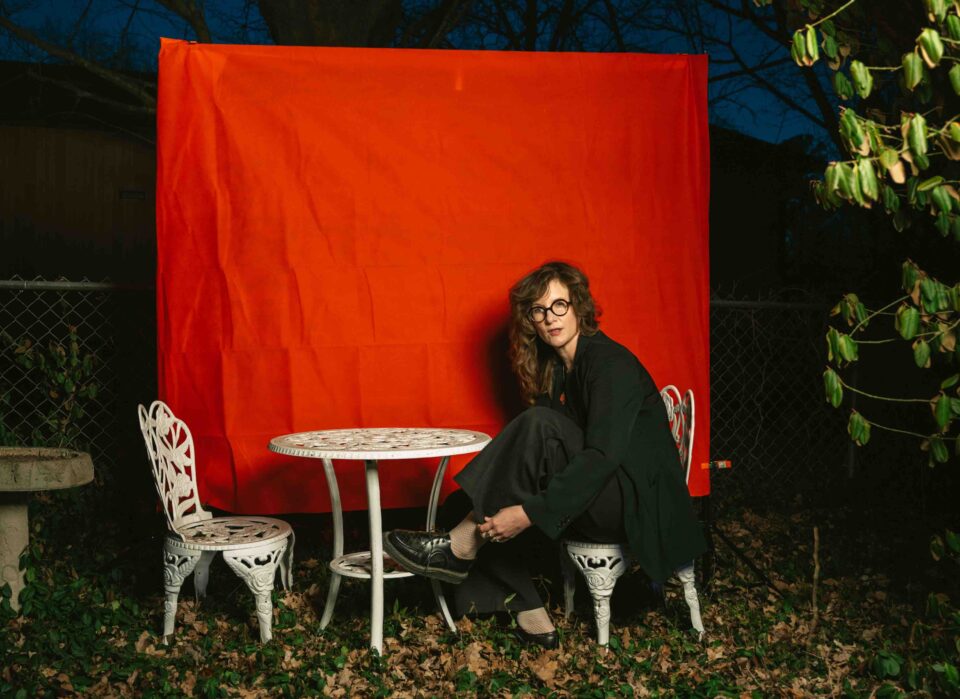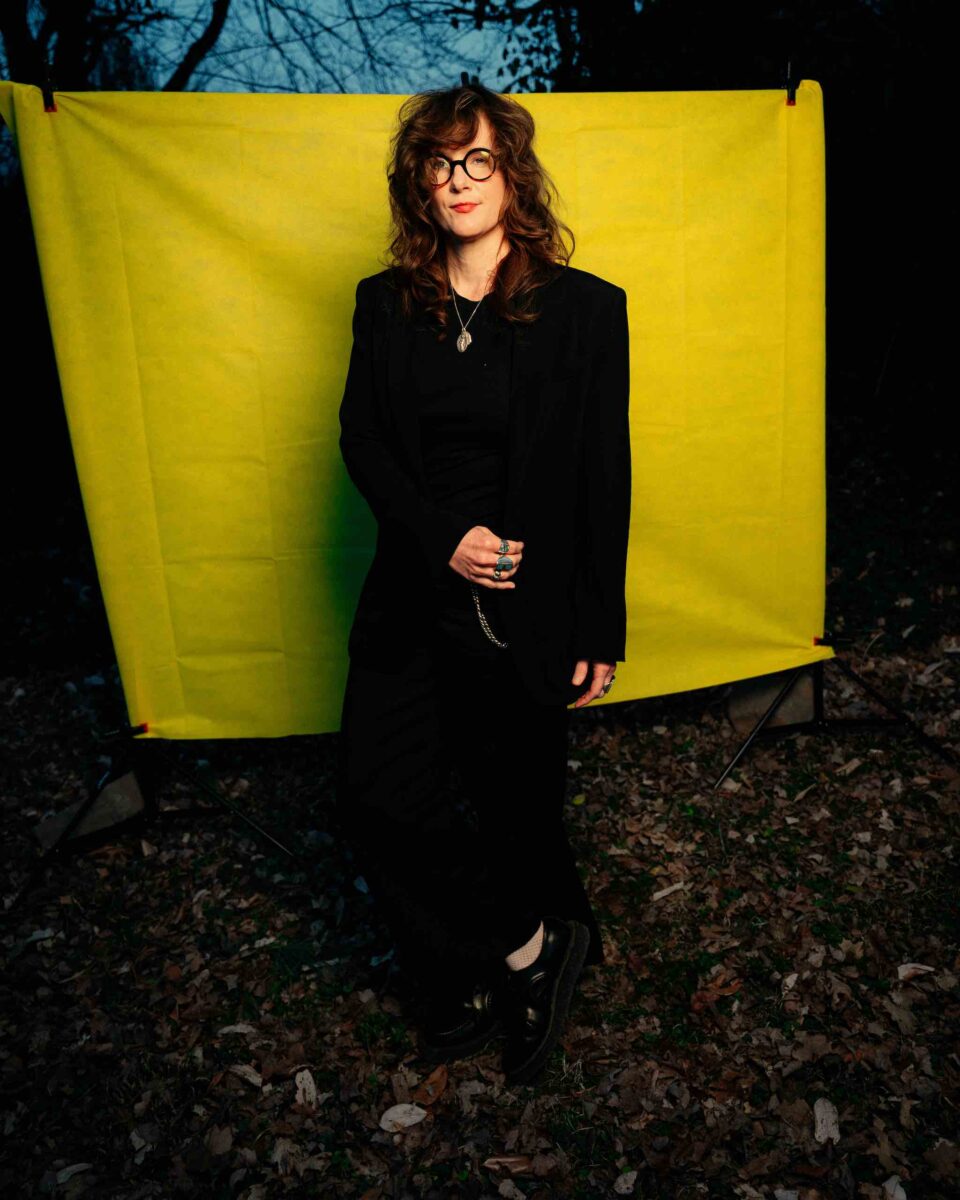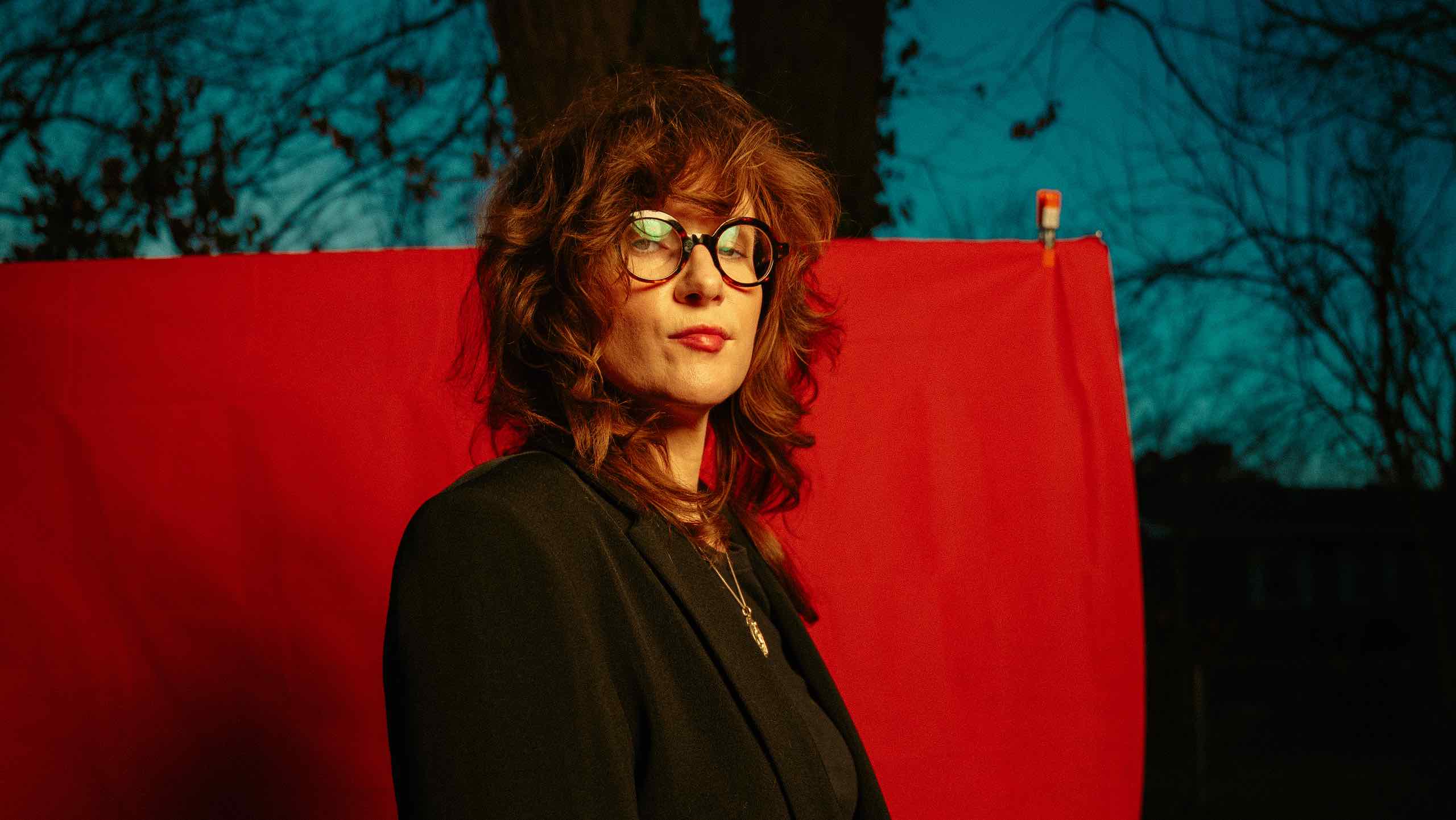S.G. Goodman doesn’t know the exact population count for her home of Murray, Kentucky, but she knows it’s not much. “I do really enjoy quiet living, and Murray definitely provides that,” she says over a call that puts her distinct Southern drawl in stark relief. “It’s right near this area called the Land Between the Lakes, which is this giant man-made lake system that’s very beautiful. There’s a lot of nature around. It’s the type of place where if you chose to leave your front door unlocked you would probably suffer zero consequence.”
Murray, for all of its quaint, college-town charm (as of 2023, its population is estimated to be around 18,000), could be considered something of a metropolis compared to where Goodman grew up, just an hour’s drive away in the rural hamlet of Hickman. Set along the banks of the Mississippi River, it’s where Goodman spent her childhood helping her father tend crops, feed livestock, and move heavy equipment from one farm to the next long before she was legally allowed behind the wheel of a vehicle. “A lot of times when you’re a kid, one of your first jobs on the farm is to ride behind a big piece of farm equipment in a truck and put your flashers on.”
Since her Jim James–produced solo debut Old Time Feeling emerged in 2020, Goodman has distinguished herself from other rootsy Americana artists by deftly drawing out her unique Southern experience like an exposed musical nerve, gnarled and raw with just the right amount of dirt rubbed into it. “We’re all a product, I guess, of our particular time and place,” she says.
On her new record Planting by the Signs, which takes its title and thematic throughline from the pagan practice of charting one’s actions along the natural rhythms of the seasons and the moon, Goodman confronts the existential impact of belief systems—how they can become ingrained and how you figure out which ones are worth hanging onto. “I think when I came across some reading material on it, I realized how it had been a part of my own life,” she says. “It was just there, which I guess is how a lot of cultural beliefs are kind of lived out. It’s not like, ‘Hey, we believe this and we do this because of this.’ It’s just a part of your life. And you don’t always step back to an outsider’s view and think ‘Huh, maybe that’s unique to my experience.’”
With the record out now via Slough Water Records and Thirty Tigers, read on for more of our conversation.

I’ve learned that oftentimes when a musician writes a song, they don’t even realize until it’s complete that the whole thing was some roundabout way of making sense of some emotion they were unable to fully process. Was there a moment like that for you working on this record?
What was so tricky about this record was that it’s the first piece of work I’ve ever gone into with an anchor as far as something that I felt like I was striving to connect it together. But with what you’re talking about, how people in hindsight can see the meaning for themselves, I believe that for me, if you don’t approach your writing that way, it’s gonna feel try-hard, something forced for meaning instead of expression.
“Snapping Turtle” opens with this scene of you when you were young coming upon a group of kids essentially hitting this turtle with sticks. You’ve been very autobiographical in your music in the past, but I was curious whether …
Whether I really whipped the shit out of those kids? Yeah, I did. It’s culturally odd to be violent, but where I was raised you got your ass whooped. I don’t say this lightly, but there are parts of me that think that that’s the best song I’ve ever written. There’s not a true chorus. It’s more stream-of-consciousness. It really goes somewhere musically—lyrically, too.
I think for me it was about connecting these two stories, of LeAnn and the snapping turtle. They’re the same thing, in my opinion, which is what I felt when the song was coming out of me. I realized that they were connected, that they were having the same experience, but I wasn’t able—no one was able—to save LeAnn from her life experience, from the environment that she found herself in, and I was able to save the turtle from the environment that it found itself in. That’s been a painful thing for me. That’s a painful thing for anybody who grew up with someone they love and who knows the potential of their life, but with the hand that they were given, [theirs aren’t] going to be the same as your experience or opportunities. I was raised around a lot of LeAnns, if that makes sense.

“You don’t always step back to an outsider’s view and think ‘Huh, maybe that’s unique to my experience.’”
When you started delving deeper into this concept of planting by the signs, did it start affecting things in your life outside the context of this record?
A simple way of putting what it’s referring to is that the moon affects water, and that anything composed of water may then be affected by different placements of the moon. That’s how it’s all constructed: that there are better times to do things than others. I mean, in the last few years I’ve seen the Mississippi River be so low and dry that they can’t get a barge to go down it. We’re living in a time where nature itself is in flux. That’s another very easy way to think about it: It’s about taking signs from nature to direct what you choose to do. We’re in this moment where the tornadoes routing through Kentucky go straight through my town. That’s not typical. We’re seeing these shifts.
I think what’s really interesting is that if you’d told me six years ago to go get on a call through my computer, or make a reel on social media, I could literally spend all day just looking into a device. It’s a really interesting thing when I’m speaking to older generations who spent so much of their daily experience paying attention to nature and things outside of a phone. What’s that saying for us? I can turn on YouTube and put on a waterfall right now. I don’t have to go out to see one. But what does that mean? What are the consequences of that? Those were all questions that kind of came up for me and maybe a driving force behind the importance of realizing that’s the direction that we’re clearly headed into—that we’re purposefully separating ourselves from the natural world. FL








